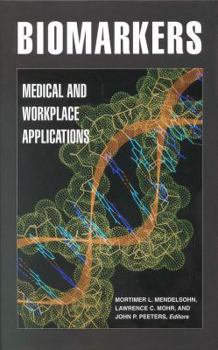Biomarkers:: Medical and Workplace Applications
A 38-year-old man who works in a factory applying coatings reports progressive breathing difficulties. A 45-year-old woman attributes her cough to copier "fumes."
What are the prospects that compound-specific or diagnostically useful biomarkers can be developed and used for the benefit of workers like these and their employers? What promise do biomarkers of susceptibility offer for reducing risk to occupational exposures? What are the legal and ethical issues associated with the use of such biomarkers?
These questions are explored in detail in this volume, which provides a comprehensive report on current and anticipated development in the application of biomarkers.
Leading investigators present data, provide expert analyses, and make recommendations in the areas of:
Dosimetry and physical measurement of exposure. Use of chromosome aberrations, adducts, and gene mutations as measurement of exposure and response. Metabolic susceptibility. Organ- and system-specific biomarkers. What biomarkers may reveal about carcinogenesis.The book also explores the societal and ethical issues of using biomarkers in the workplace, military, courtroom, and other settings.
Related Subjects
Administration & Medicine Economics Administration & Policy Basic Sciences Biochemistry Biological Sciences Biology & Life Sciences Clinical Engineering Health Risk Assessment Health, Fitness & Dieting Health, Fitness & Dieting Internal Medicine Medical Medical Books Medicine Occupational Occupational & Industrial Medicine Pharmacology Public Health Science Science & Math Science & Scientists Science & Technology Technology Textbooks Toxicology




